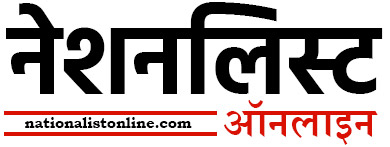August 12, 2016, will be remembered as a historic day for those who are struggling since 1947 against the illegal Pakistani occupation of their homeland, Baluchistan. Indian Prime Minister Narendra Modi, in a statement issued after an all-party meeting highlighted Pakistan’s atrocities. He said, “Time has come for Pakistan to answer about persecution of people of Baluchistan and Pakistan-occupied Kashmir to the world.” It came just a day after August 11, which is celebrated by the Balochs as their independence day.
against the illegal Pakistani occupation of their homeland, Baluchistan. Indian Prime Minister Narendra Modi, in a statement issued after an all-party meeting highlighted Pakistan’s atrocities. He said, “Time has come for Pakistan to answer about persecution of people of Baluchistan and Pakistan-occupied Kashmir to the world.” It came just a day after August 11, which is celebrated by the Balochs as their independence day.
After the partition of India, Pakistan militarily invaded two areas, Kashmir and Baluchistan. The case of PoK is well-known to all, but on the western front no one was there to check the Pakistani aggression on the Baloch people. As a result, the Balochs are still under illegal Pakistani occupation. They observe August 14 — Pakistan’s Independence Day — as a black day in their history.
“Baluchistan was never a part of Pakistan”, said Naobat Mari, a young Baloch activist. He said “First, our land was invaded by the British, who divided it into three parts. After the partition of India in 1947, the eastern part of Baluchistan remained an independent state, which was later forcibly annexed by Pakistan.”
To highlight the Pakistani atrocities, last month the Free Baluchistan Movement (FBM) began its long march from Dusseldorf in Germany on July 16, called ‘The Baloch Freedom March’. Activists of the FBM started a 700 km long march from Dusseldorf to Berlin Parliament on foot. They interacted with people on the way and highlighted the brutal happenings in their homeland.

In their appeal to the international media and human rights organisations, the marchers read out a message setting out the aim of their long march. They said, “We have decided to organise this long march to highlight the ongoing Pakistani state atrocities and human rights violations in Baluchistan. The aim of our march is also to inform the freeborn of the world that there is a war going on in Baluchistan but the international community and the world media mostly either remains unaware of this war or they are misled by Pakistan state-sponsored propaganda into believing that everything is fine in Baluchistan.”
“Pakistan is carrying out increased brutal military operations and attacks against innocent Baloch civilians; it is because it can see its defeat and the success of Baloch struggle. The enforced-disappearances, extra-judicial killing, indiscriminate bombing of Baloch villages and targeted killing of the most conscientious and educated youth in Baluchistan are signs of weakness and frustration of the enemy state — Pakistan”, said Hyrbyair Marri in a message, which was read out by one of the participants in front of German Parliament on August 5, at the end of the 700-kilometer-long march by foot, which reached Berlin in its culmination.
He also said that he would like to reiterate the point that the Afghan and Indian Governments, and all other free nations, should include Baluchistan in their foreign policy decision-making, and support the Baloch national liberation struggle politically, morally and diplomatically at all forums.
In the past, Marri had asked the US Administration to stop all financial and military aid to Pakistan because it was being used against secular Baloch civilians. It is pertinent to note that the Pakistani forces have enforced-disappeared more than 20,000 people in the last 15 years and killed more than 5,000 of the disappeared people, in custody. Not a day passes by without Pakistani military attacks on Baloch civilians.
The long marchers in their appeal said that “the Pakistani forces are indiscriminately killing our men, women and children by attacking our homes and villages”. Baloch activists accused Islamabad of committing rights abuses in their Province. In this march in Germany, they complained that while Kashmir continues to dominate news, their plight is ignored.
“Baluchistan was never a part of Pakistan”, said Naobat Mari, a young Baloch activist. He said “First, our land was invaded by the British, who divided it into three parts. After the partition of India in 1947, the eastern part of Baluchistan remained an independent state, which was later forcibly annexed by Pakistan.”
He further added, “Our movement has always been peaceful. We want to inform the European people about our plight. We want to assert that freedom is our fundamental right.”
Chinese President Xi Jinping last year signed 51 accords to inaugurate the China-Pakistan Economic Corridor (CPEC), and Baluchistan’s Gwadar port development is one among them. In the wake of the China-Pakistan deal, the Baloch separatists have demanded a share of the financial benefits for their Province. Some Baloch leaders have also complained that Islamabad deliberately changed the corridor route in favor of Punjab, avoiding Baluchistan’s key cities.
Baluchistan is one of the wealthiest regions of the world in terms of natural resources such as oil and gold mines, and has strategic importance. And yet, the Balochs are deprived of basic human commodities. The Baloch people had an independent and sovereign country for centuries until they were invaded by Pakistan in 1948. Since then they have been struggling to free their country and end Pakistan’s colonial rule.
(The writer is research associate
at Dr Syama Prasad Mookerjee Research Foundation, New Delhi)
